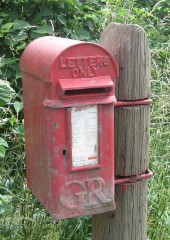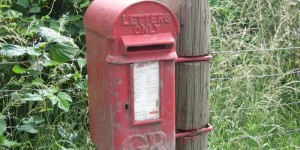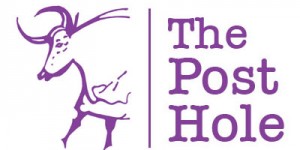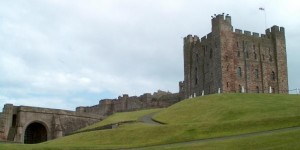- What is your job title?
Head of Information and Communications at the Council for British Archaeology. - What are the current projects that you are working on at the moment?
The main one we've got at the moment is developing our website, which we launched in December, last year; its got loads of new elements to come yet. So We are designing things like the Young Archaeologist Club — its about to have a new website; the Festival for British Archaeology, which is a set of about 500 events each July — that website's going to go live quite soon; and then we've got a really exciting new element to it which is going to serve up information about any contacts, any courses, any events, any excavations that are going on all on one page. - What first got you interesting in archaeology as a subject?
I suppose to begin with it was the idea that things in most aspects of the past were just so incredibly different to today. And that always fascinated me: that sense of what it can tell you then about the way we live now because of that difference. Pretty much whatever period in the pre-Industrial age really, I think its just the contrast really which is always quite tempting. - From that, what got you into the job you are currently in now?
It was mainly an interest in the way that archaeologists use the web, particularly their research. Prior to this job I did a research project for the university here called the 'Store Project', which was all about how archaeologists use online resources, both data archives but also applications and so to pretty much compare archaeologists to lots of other disciplines. It was quite a weird and wonderful project, but really interesting to see the way archaeologists are increasingly using the web just as an integral part of their research. So that's what led me onto this job. But I've always wanted to work for the CBA because they're one of those organisations which are very aware of how archaeology is perceived by the general public. - What kind of work experience has led you to this career? What have you found particularly useful?
I think the main thing perhaps was having done a bit of various different aspects of archaeology: it is often attractive to a body like the CBA. So, if you have done a little bit of contract digging for example, but also if you have had a bit of a university background and done, in my case three degrees - but at least one or two - then it gives you a sense of how universities operate. Also having helped out with local societies, community groups and done a bit of that helped. Also, a general awareness of what is going on now in archaeology. - And what's the best part of your job?
I would say probably broadcasting news; the latest news. We are often the first people to find out something has been discovered or something has been found or something has gone wrong or something's controversial or a government minister has said something about archaeology, either bad or good news. And finding out first and having the job of putting that news out is really exciting I think. - And the worst?
Emails. I have to send maybe 50 or 60 emails a day, with sometimes more sometimes it feels like I am just reading and sending emails all day. - How much do you deal with the public as a whole?
I would say probably every day, more or less. It varies a lot depending on the time of the year and it depends on the reason. But we very often get enquiries from people, just really general enquiries about 'I'd like to get into archaeology' or 'I'm involved in archaeology and I'd like to do this kind of research, where shall I go for advice?' So we often get phone or email enquiries like that. And then at various events across the year we meet the general public en masse, as it were. Or we go to events where it is not actually an archaeology event but we've got a little archaeology stall and then have to talk to the very general public, which is quite interesting sometimes. - What are your thoughts on the state of the archaeological field in the country? Do you think its adequate or do you think there's room for improvement? If so, where?
I think we have a much more diverse scene than in most European countries, because of the fact that you can volunteer to do archaeology and you can do archaeology on your doorstep, potentially without a license. Albeit, if it's a scheduled land you have to have consent but I think that makes it really exciting, it gives everybody the opportunity to do that kind of research. If there's something that I think is then a real drawback, I think, is that we have distinct, defined sectors in Britain and I think they're often not talking to one another as well as they might. Sometimes we do not realise what each other are doing and quite how to talk to each other. I think that's one of the problems; that the different blocks often do not talk to each other. - How do you see the job scene in archaeology at the moment?
Ah, something that has been talked about a lot. It really has hit front page news that archaeology has been hit very hard by the recession, mainly because developer funding is drying up. Not completely, and the picture is a mixed one, and obviously that is only a particular kind of archaeological job. The IFA survey, Profiling the Profession, last year identified that it's only just over 50%. There are a lot of contracting diggers, if they haven't had the chance to diversify their skills a bit and get some experience under their belt then they are a little bit vulnerable at the moment. The real worry there is that a lot of really good skills are going to be lost as all of these really talented graduates who have got a bit of experience, are handy, practical people are going to go off and get other jobs because other sectors are weathering the recession slightly better. There are still a lot of archaeological units which are doing fine and beyond the contracting sector I think its actually quite a good scene. There are more university jobs than has ever been and there are more courses than there have ever been, so the opportunities for postgraduate study are better than ever before. There are a lot more jobs than there used to be in organisations, charities such as the CBA, public sector bodies such as Historic Scotland, CADW or English Heritage and although they are not completely invulnerable to the recession I there are some jobs out there and its just a question of looking in all the right places and putting in lots of applications. - What advice would you give to a student who wants to get a job in the archaeological field?
Start looking quite soon so you get an impression of what is out there. And do not necessarily assume its all about contract digging. Traditionally, certainly for the last 10 years, that's been a stalwart of employment as a good first start for people who want to become a professional archaeologist. Those jobs are still there if you look hard but its worth looking around at other jobs because there are often surprising organisations like Natural England, for example, have archaeologists, or local authorities. Typically Borough and County Councils employ archaeologists. So there are loads of different employers and its worth looking around at really diverse different sources. The Guardian's a good source, BAJR, the IFA, things come up on BritArch, sometimes on the CBA website. It is always worth looking around at all those different sources and getting a good sense of what is there so that when you see one that really takes your eye you are ready to put in an application - How did you find job interviews throughout your career?
I think the more you are interviewed the easier it gets. I think something often comes good of a job interview even if you do not get the job. So the chance you have had to meet two, or three, or four people for the first time who are interviewing you, who are often quite influential people in archaeology, is quite good. And often if you do not get the job, if you have impressed them in some way and a few months later you drop them an email about something they'll know who you are, have a good impression of your skills and will know what kind of background you come from. So, I think it's worth going for lots of interviews even though sometimes you might not get the job. - Do you have any particular techniques to pass on to graduates who are just coming into the interview phase now?
Being really, really well prepared; there's no replacement for that. Knowing the job that you are applying for; really looking into quite what it is you are applying for; what the job is; and also the organisation you are applying to. No matter who they are its always good to do a bit of mugging up on the web. And there are the tricky interviews which take a bit of practice of having in the back of your mind all the brilliant skills, talents and experience that you have and kind of sprinkling those in all of your answers so that by the end of it they're not just relying on your application and your CV. But it is a bit of a trick as it's nerve-wracking and it is never easy really. - You said you have done three degrees, which were they?
I did a BA in Archaeology here in York; I did an MA in Islamic Archaeology in London and then a PhD here in Early Medieval Monasticism, which finished not long before I got this job and its was in between that I did this other project. - What do you see yourself doing after this?
I suppose the exciting thing about this job is that I can be quite ambitious and try new things but within the context of the job so it can go places rather than me think 'Oh I'll go for a different job now and do something else'. So, it sounds a bit boring, but I am happy to stick with it, its great fun and I am happy for a few years to really see it develop and see where it goes.
With thanks to Dan Hull.






